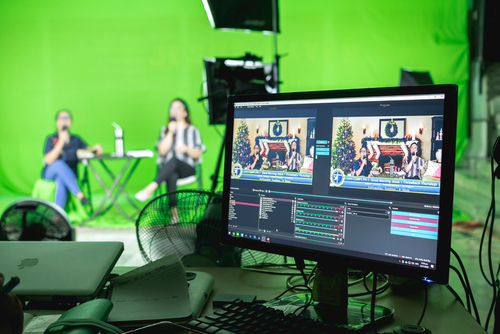
Safeguard Your Content: A Look at BlendVision's Content Protection Technology
2024-02-19
In today's digital age, securing content is of utmost importance. With the rise of online consumption, content creators and owners face a range of threats, including piracy, unauthorized distribution, and unauthorized access. These threats not only undermine the revenue potential of content creators but also pose a risk to the confidentiality and integrity of the content itself.
BlendVision recognizes these challenges and offers a range of advanced security measures to ensure that content is protected from malicious intents, ensuring that content owners retain full control over their content. Let's explore the different types of security measures that BlendVision offers:
Digital Rights Management (DRM)
After investing significant resources into producing unique content, the last thing any creator would desire is for their hard work to be leaked.
BlendVision’s Digital Rights Management (DRM) is a security feature that protects content through encryption, restricting access to authorized playback only, and thereby preventing piracy and unauthorized distribution. This mechanism automatically detects the user operating system and playback browser, and displays a blank screen in lieu of normal content upon detection of screen recording or screenshot events from malicious users.
Geo Restriction
BlendVision also allows content owners to restrict access to their content based on geographic location. This not only helps to comply with regional content distribution regulations, but also protects the rights of content owners.
Through the BlendVision console, they can define a subset of regions from which their content can be accessed. Since this layer of protection is managed through the Content Delivery Network (CDN), it will also remain intact even if they opt to utilize their own player technologies for playback.
Watermark
Even with a powerful mechanism such as DRM in place, content owners might still be wary of malicious users taking photos or recordings via an external device such as a camera or smartphone.
Included in BlendVision’s player technology, watermarking is a feature that adds an identifier to content, allowing the content owner to track its distribution and identify the source of unauthorized distribution. The position of the watermark can also be configured to randomly appear in each section of the player view, to prevent straightforward coverings of its display.
In the event that their content is unfortunately leaked, unique user identification is also nested within our watermark technology, enabling precise tracking of the leak source.
Domain Control
Those who are more well versed in the technical aspect of web based technologies may recognize that an inherent vulnerability still remains exploitable even with the measures enforced above. The fundamental basis of iFrame based integration for our playback technology and its underlying content entails adding a piece of code within the HTML code of a client website.
Under this integration method, it is still possible for a third party to attempt to copy said piece of code, with the intention of pirating it on their own websites. This is where BlendVision’s domain control comes in handy, where access to content is restricted based on the underlying domain of the user. In other words, only user access from authorized domains, i.e. their respective websites, will be granted to the content in question.
This adds another layer of insurance to prevent unauthorized sharing as well as protects the potential revenue of content creators.
Content Visibility
BlendVision currently offers three privacy levels for viewing content: Public, Password, and Token. These privacy tiers ensure that users have control over who can access their content, providing options for different levels of security based on their needs.
- Public: This is the most accessible level. Content will be readily available to all viewers without any requirements for authentication.
- Password: This level offers a light layer of protection. Content owners can configure a password via the BlendVision console that will be input from viewers upon access attempts.
- Token: This level offers a more secure protection mechanism. Content owners have a lot more flexibility when integrating with our system via API, where viewer access will be authorized via a token mechanism. They can also opt to use the showroom portal generated via BlendVision, in which case viewers will need to enter a unique redemption code prior to entry.
Trusted Online Content Protection Solution: BlendVision
In summary, BlendVision offers a range of security features to protect content from unauthorized access and distribution. With BlendVision's comprehensive security measures, content owners can have peace of mind knowing that their content is safe and secure, while viewers immerse in an enjoyable playback experience.
Get Started Today.
Fill in the form and one of our consultants will help you shape your video strategy.
Related Articles

Beyond Large Language Models: Multimodal AI Applications Will Be Everywhere
Explore how multimodal AI combines text, images, audio, and video to power next-gen applications from content creation to speech and avatar tech.

OBS Live Streaming Tutorial: From Beginner to Advanced, Create Professional Live Streams
Master OBS live streaming with this guide! Learn how to set up OBS, configure scenes, optimize audio, and stream to platforms like BlendVision One.

Why Your Network Service Needs a CDN: Understanding How CDNs Work
Enhance your web service with a CDN. Discover how Content Delivery Networks boost speed, security, and SEO, reducing costs and improving user experience.

